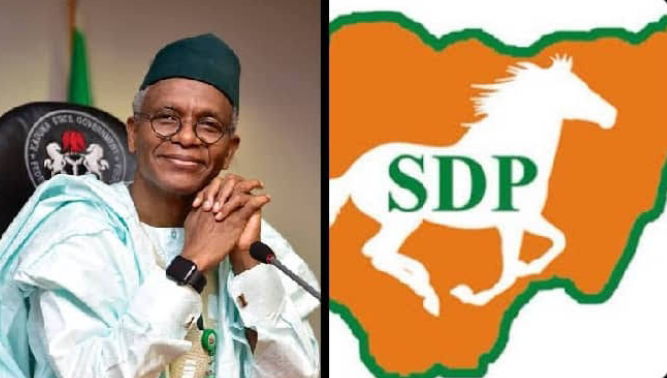
Nigerian President Muhammadu Buhari sits at the 25th African Unit Summit (2015).
President Muhammadu Buhari’s new year agenda has been dominated by the reaction to the proposed 2016 budget that he presented in person to the National Assembly on 22 December. As Nigeria Focus reports, the fall-out from the budget raises questions about government’s future ability to pass legislation through the National Assembly.
The Nigeria budget is a bold attempt to bolster capital spending and infrastructure while cutting recurring expenditures, but significant new borrowing is planned. It includes substantial social programmes, with health, education, and welfare relief payments totalling some ₦500 billion (US$2.5 billion).
As outlined by Buhari and Vice-President Yemi Osinbajo, the Nigeria budget planners have adopted a Keynesian strategy to boost productive spending as a counter to recession. With the inclusion of a ₦2 trillion deficit in the budgetary calculations, the big question is how that financing gap will be funded.
Political posturing
Unfortunately, these important issues of economic strategy have been overshadowed by a political spat between the presidency and the legislature over the management of the Nigeria budget announcement. Despite the outrage from opponents of the government, the dispute is more about political posturing than about the notionally substantive constitutional issue claimed.
The background to the dispute is that the government has to submit its financial and budgetary plans for the following year to the National Assembly before the December recess. Because new ministers and permanent secretaries were not appointed until October, much of the preparatory work on the budgetary process was done by officials of the outgoing government. Incoming officials then started some hasty revisions. In the process, some major anomalies were left uncorrected.
The second complicating factor is the traditional printing allocation, which the executive pays to the legislature to print and disseminate the budget across the country. In reality, this is a slush fund – a sum far greater than the costs of distribution and printing – intended to secure the goodwill of both houses in the National Assembly and help the speedy passage of the budgetary bill.
Due to financial stringencies and its anti-corruption posture, the executive refused to make this payment, riling both Senate President Bukola Saraki and a senior member of the ruling All Progressives Congress (APC) who remains at odds with President Buhari – not to mention the minority Peoples Democratic Party (PDP) members in both houses who saw an opportunity to trip up the government.
They quickly seized on the fact that the budget the president announced on 22 December required amendments. Accordingly it was ‘withdrawn’ after he read it out and changes were made, notably to designated spending in the presidency.
This was after the allocations had been seized on by the press as inconsistent with the president’s advocacy of austerity. Buhari then told journalists that he had neither requested nor approved the allocations, raising some concerns about the accountability and transparency of the Nigeria budget planning process.
The temporary withdrawal of the budget for amendment prompted allegations by the opposition that the government’s actions contravened the constitution, an impeachable offence for the president, if any impropriety could be proved. In fact, there was no impropriety because the amendments were reducing the expenditure that had been earlier announced.
Neither does the contention that Buhari presented a ‘forged budget’ stand up. The focus of the allegations is that Buhari’s senior special assistant Senator Ita Enang switched the budget presented on the 22nd with another version. This would have deprived the National Assembly of the correct version. The Senate announced that it would investigate the differences between the two versions.
The PDP then called for Buhari’s impeachment and the resignation of Central Bank governor Godwin Emefiele, Budget and National Planning Minister Udo Udoma, and Finance Minister Kemi Adeosun.
Forming up sides
However overblown these calls are, the crisis established a joint front in the Senate: the Saraki group and the PDP against Buhari. This is putting down a marker to the executive: it will have to negotiate with the Senate if it wants its bills passed promptly.
The group of APC senators backing Saraki are doing so for their own political purposes and to protect him against an on-going investigation into charges that he breached code of conduct rules. All this is a great boost to the PDP in the Senate, given the party’s drubbing in the national election last year.
The matter does raise questions about the government’s ability to push through its policy agenda in the legislature. Somehow relations between the National Assembly and the government will have to thaw in the coming months if the kind of political gridlock seen in the US system under President Barack Obama’s tenure is to be avoided.
Clearly relations between the two sides are pretty poor. Senators even complain that Buhari did not give Saraki and his deputy, Yakubu Dogara, their due mention in his budget statement.



